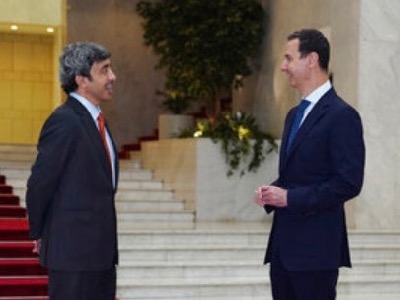
The United States has made clear its position vis-à-vis Syria: it will henceforth allow Arab countries to have dealings with Damascus for the benefit of the people, but normalizing relations with President Bashar al-Assad is still a no-no.
This attitude reflects the one advocated by Brett McGurk - current National Security Council coordinator for the Middle East and North Africa - in the May edition of Foreign Affairs [1].
It also echoes to President Joe Biden’s concession to his Russian counterpart, Vladimir Putin, on the occasion of their summit meeting in Geneva in June 2021.
– On September 4, a Lebanese government delegation took part in a joint cabinet meeting with its counterparts in Damascus.
– On October 3, President Assad held a telephone conversations with King Abdullah II of Jordan.
– On October 20, President Assad spoke over the phone with the interim President of the United Arab Emirates, Sheikh Mohammed bin Zayed al-Nahyan.
– On November 9, President Assad received UAE Foreign Minister Abdullah bin Zayed (photo) in Damascus.
– On November 9, Egyptian Foreign Minister Sameh Shoukry, speaking at the Wilson Center in Washington, confirmed that no longer anything stood in the way of the Syrian Arab Republic’s reinstatement into the Arab League.
[1] "Hard Truths in Syria : America Can’t Do More With Less, and It Shouldn’t Try", Brett McGurk, Foreign Affairs, May-June 2019.












Stay In Touch
Follow us on social networks
Subscribe to weekly newsletter